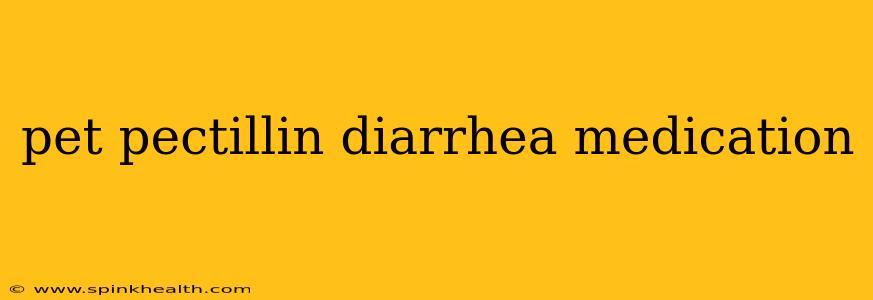Diarrhea in pets is a common ailment that can leave owners worried and searching for solutions. While a quick trip to the vet is always advisable for persistent or severe cases, some pet parents explore natural remedies alongside veterinary care. One such remedy gaining popularity is pectin, often found in commercial pet supplements. But does it truly work? Let's delve into the world of pet pectin and diarrhea.
My name is Dr. Emily Carter, and for the past 10 years I've been a practicing veterinarian with a special interest in holistic and integrative approaches to pet health. I'm not suggesting you replace veterinary care with home remedies; instead, I hope this information helps you have an informed conversation with your vet about integrating natural solutions into your pet's treatment plan.
What is Pectin and How Does it Work?
Pectin is a soluble fiber found naturally in many fruits like apples and citrus peels. It works in the digestive system by absorbing excess water. Imagine a sponge soaking up a spill; pectin acts similarly, binding to watery stool and helping to firm it up. This can significantly reduce the frequency and severity of diarrhea episodes. The exact mechanism of action is still being researched, but its ability to bind to pathogens and toxins in the gut also contributes to its effectiveness.
Can I Give My Pet Pectin for Diarrhea?
This is a question that needs careful consideration. While pectin is generally considered safe for pets, it's crucial to consult your veterinarian before administering it. They can help determine the underlying cause of your pet's diarrhea and advise whether pectin is a suitable addition to the treatment plan. The correct dosage is also critical, as too much can lead to digestive upset. Never self-medicate your pet.
What Are the Potential Side Effects of Pectin for Pets?
Generally, pectin is well-tolerated by animals. However, some pets might experience mild side effects like gas or constipation, especially if given in excessive amounts. Monitoring your pet closely after administering pectin is vital. If you notice any adverse reactions, discontinue use and contact your veterinarian immediately.
What are Some Other Natural Remedies for Pet Diarrhea?
Many factors contribute to diarrhea, and pectin alone might not solve the problem. Your vet might suggest a combination of approaches depending on the cause. Other options could include:
- Dietary Changes: A bland diet of easily digestible foods can help soothe the digestive tract.
- Probiotics: These beneficial bacteria can restore gut flora balance.
- Hydration: Ensuring your pet drinks enough water is crucial to prevent dehydration.
Does Pectin Work for All Types of Pet Diarrhea?
No. Pectin is most effective for diarrhea caused by mild digestive upset or minor dietary indiscretions. It is less likely to be helpful for diarrhea stemming from serious illnesses like infections, parasites, or inflammatory bowel disease. A proper veterinary diagnosis is crucial to determine the root cause and the appropriate treatment strategy.
What is the Right Dosage of Pectin for my Pet?
There's no one-size-fits-all answer here. The appropriate dose depends on your pet's size, species, and the severity of the diarrhea. Your veterinarian can provide personalized guidance on the correct dosage and administration method. Never guess – incorrect dosing can be harmful.
How Can I Choose a Safe Pectin Supplement for My Pet?
When selecting a pectin supplement, choose products specifically formulated for pets and that are free of artificial colors, flavors, and preservatives. Look for products from reputable manufacturers.
In closing, pectin can be a helpful addition to your pet's treatment plan for diarrhea, but it should always be used under the guidance of a veterinarian. Remember, a proper diagnosis and tailored treatment plan are essential for ensuring your furry friend's health and well-being. Never hesitate to contact your vet with any concerns about your pet's health.

